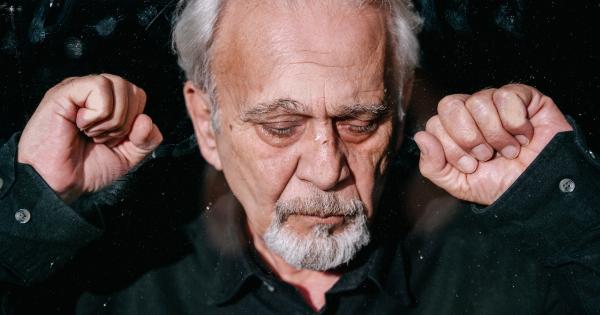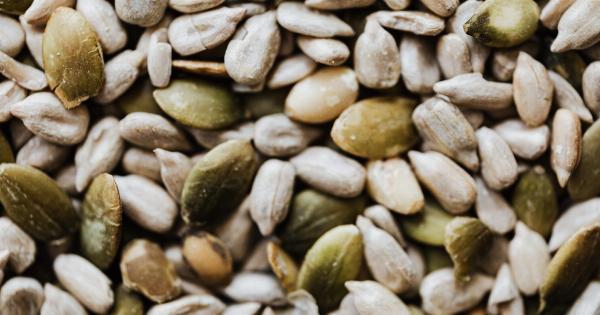Many people rely on a morning cup of coffee or tea to kickstart their day and revitalize their energy levels. Caffeine, the natural stimulant found in these beverages, has long been known for its ability to increase alertness and improve focus.
However, recent research suggests that caffeine may also play a significant role in promoting hair growth.
Understanding Hair Growth
Before delving into the relationship between caffeine and hair growth, it’s essential to understand how hair grows in the first place. Hair growth occurs in cycles, with three main phases: anagen, catagen, and telogen.
The Anagen Phase
The anagen phase is the active growth phase of the hair follicle. During this stage, hair cells rapidly divide and differentiate, resulting in new hair growth.
On average, this phase lasts between two to six years, and the length of the anagen phase can determine the overall length and density of hair.
The Catagen and Telogen Phases
Following the anagen phase, the hair follicle enters the catagen phase, a transitional period lasting for about two weeks. During this phase, hair growth ceases, and the follicle undergoes a shrinking process.
Finally, the telogen phase, also known as the resting phase, begins. It lasts for approximately three months, during which the old hair sheds to allow new hair growth to take place.
The Link Between Caffeine and Hair Growth
Research into the effects of caffeine on hair growth has grown significantly in recent years. Studies have shown that caffeine can stimulate hair follicles and extend the anagen phase, contributing to longer and thicker hair.
Let’s explore the mechanisms behind caffeine’s impact on hair growth.
1. Increased Blood Circulation
Caffeine consumption has been linked to improved blood circulation in the body, including the scalp. Proper blood circulation ensures that hair follicles receive essential nutrients and oxygen required for healthy hair growth.
By promoting blood flow to the hair follicles, caffeine can enhance their functionality and stimulate hair growth.
2. Inhibition of DHT
Dihydrotestosterone (DHT) is a hormone derived from testosterone, and it plays a significant role in male pattern baldness.
Research suggests that caffeine can help inhibit the effects of DHT on the hair follicles, reducing hair loss and promoting regrowth. By targeting DHT, caffeine may help individuals maintain a full and healthy head of hair.
3. Activation of Hair Growth Factors
Studies have found that caffeine can stimulate specialized growth factors in the scalp, such as insulin-like growth factor 1 (IGF-1) and vascular endothelial growth factor (VEGF).
These growth factors play crucial roles in regulating hair growth and follicle health. By activating these specific factors, caffeine can promote increased hair growth and combat hair thinning.
4. Protection Against DNA Damage
Exposure to environmental stressors, such as ultraviolet (UV) radiation, air pollution, and free radicals, can damage DNA in hair follicle cells and hinder healthy hair growth.
Caffeine has been shown to possess antioxidant properties that protect against DNA damage caused by these harmful factors. By shielding the hair follicles from oxidative stress, caffeine may aid in maintaining strong and vibrant hair.
The Application of Caffeine for Hair Growth
While consuming caffeine through beverages like coffee and tea can offer some benefits for hair growth, topical application of caffeine directly to the scalp is more direct and effective.
Various shampoos, conditioners, and hair tonics containing caffeine are available in the market to provide targeted nourishment for the hair follicles. These products are often recommended for individuals looking to enhance hair growth and combat hair loss.
Precautions and Considerations
While caffeine can be beneficial for hair growth, it is important to exercise caution and follow proper usage guidelines. Here are a few considerations:.
1. Limitations of Caffeine
While caffeine can help improve hair growth, it may not be a definitive solution for significant or irreversible hair loss conditions such as male pattern baldness.
It is important to manage expectations and consult with a medical professional for proper diagnosis and guidance.
2. Allergic Reactions
Some individuals may be sensitive or allergic to caffeine. It is advisable to conduct a patch test before introducing caffeine-based hair care products to check for any adverse reactions such as itching, redness, or irritation.
3. Proper Application
When using caffeine-infused hair care products, follow the instructions provided by the manufacturer for optimal results.
Applying excessive amounts of caffeine or leaving it on the scalp for too long may have unintended consequences, so it is crucial to adhere to the recommended usage guidelines.
Conclusion
Caffeine, often associated with boosting energy and alertness, has emerged as a potential ally in promoting hair growth.
Through various mechanisms such as increased blood circulation, inhibition of DHT, activation of growth factors, and protection against DNA damage, caffeine can contribute to longer and thicker hair. However, it is essential to exercise caution, consult with professionals if experiencing significant hair loss, and follow proper usage guidelines for caffeine-based hair care products.




























